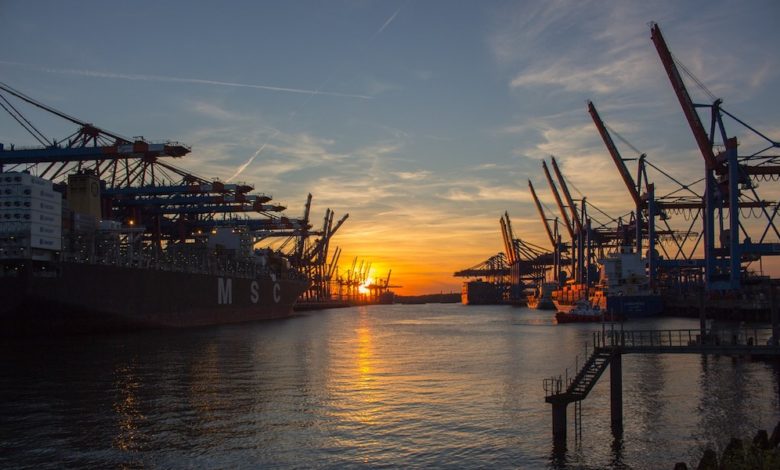Green shipping: Regulation, enforcement, and leadership

Claas Ringleben from the Liberian Registry writes for Splash today.
Last week’s World Maritime Day saw the International Maritime Organization celebrate new technologies for greener shipping. The green tech ambition is, of course, part of a much wider effort to reduce emissions and promote sustainability initiatives across the shipping industry. However, while there is increasing acceptance within the industry that sustainability should be at the core of operations, there is also a lack of understanding around what this practically means, and how sustainability ties into the metrics of the UN’s Sustainable Development Goals (SDGs) and corporate Environmental, Social, and Governance (ESG)
The Sustainable Development Goals are an urgent call for action by all countries – developed and developing – in a global partnership. They recognise that ending poverty and other deprivations must go hand-in-hand with strategies that improve health and education, reduce inequality, and spur economic growth – all while tackling climate change and working to preserve our oceans and forests.
Shipping, with our global reach and economic impact, has the potential to directly contribute in many of these areas. The Liberian Registry, by virtue of its position as a leading Flag State, is committed to promoting prosperity and protecting our Planet Earth and has committed itself to the Sustainable Development Goals.
As an example of how shipping has a positive impact, the Liberian Registry is a major source of foreign direct investment for Liberia and provides a significant amount of revenue to fund major educational, governmental, and infrastructural projects. The Registry’s activities and revenues also create additional employment opportunities for Liberian and foreign citizens.
Liberia, as one of the first African countries to receive international standing on a United Nations body, fosters peace, justice, and strong institutions. Due to the size of the Liberian fleet and its remarkable safety record, Liberia is afforded a leadership role on the International Maritime Organization and is a signatory to all the major safety and environmental protection Conventions and Treaties.
The IMO has been setting the regulatory framework on a wide range of topics, including ballast water, emissions, transport policies, and maritime pollution. However, when it comes to industry driven work, the maritime industry has several domain specific initiatives that are making a tangible impact and have great potential. Liberia was the first flag state to join the Maritime Anti-Corruption Network (MACN). MACN is a global business network working towards the vision of a maritime industry free of corruption that enables fair trade to the benefit of society at large. The Network now includes over 165 companies globally, making up over 50% of the world’s tonnage, and has developed into one of the world’s pre-eminent examples of industry-led collective action to fight corruption.
The Liberian Registry, in its commitment to care for life below water and life on land, is also a Foundation Member of Eyesea, a shipping industry-backed non-profit organization with a mission to map global pollution and maritime hazards. Eyesea is asking everyone from seafarers, recreational sailors, professional mariners, fisherman, surfers and divers, to members of the public and anyone who has access to the coast, littoral waters, and the vastness of the ‘blue water’ ocean, to keep an eye on its health.
For all the important work being done on corporate ESG, sustainability, and emissions reduction it is important that companies back up their work (and associated claims) with sound metrics. In the wider commercial world, sustainability and governance claims that are made to regulators, the public, and investors are coming under unprecedented levels of scrutiny.
In recent months, the SEC, The Norwegian Consumer Authority, German prosecutors, and The Netherlands’ Authority for Consumer Markets have started investigating company ESG models and statements for inflated and misleading claims of ‘green’ performance. Companies have found that green credentials, driven by marketing with questionable data and little board-level oversight, have turned into areas of substantial compliance and legal risk.
This is all very important because following new emissions standards, ship owners and managers are now in a position where they are going to have to prove any claims made—and proof will need to be backed by real data.
Industry backed organizations like MACN, Eyesea, and even the Liberian Ship Owners’ Council, show there is an appetite for industry cooperation and coordination when it comes the environment, working with communities and civil society, and building good governance. On the regulatory front, the industry has clear milestones to meet. But we are also building up leadership capacity in areas where we should, and can, have a louder voice. This industry-driven leadership can have a profound impact on the way we reconnect to onshore communities.
The Liberian Registry, if you ask me, is prepared for the challenges ahead, and remains prepared to take additional steps in the right direction. The good news is, clearly, we are not alone.
